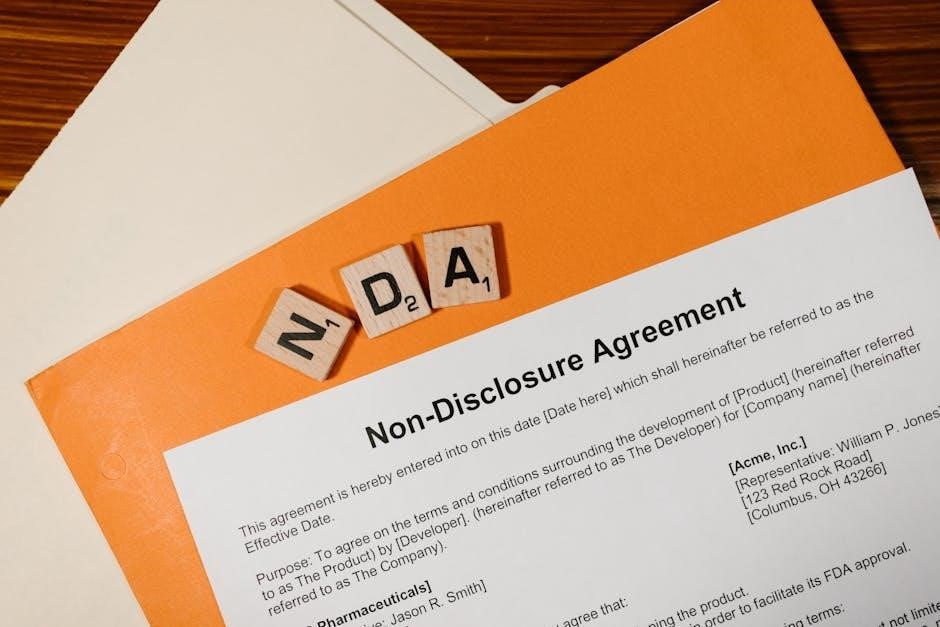Spinnin Records, established in 1999, is a leading electronic music label based in the Netherlands. Renowned for nurturing talent, it has significantly influenced the global EDM scene and is recognized for its role in launching successful careers in various genres.
1.1 Background and Establishment
Spinnin Records was founded in 1999 in the Netherlands, emerging as a pivotal force in the electronic music industry. Headquartered in the Netherlands, the label has become synonymous with nurturing talent and launching successful careers across various EDM subgenres. With a network of 26 sublabels, including Doorn Records and Wall Recordings, Spinnin Records has significantly influenced the global electronic dance music scene. Its strategic approach to artist development and trend identification has cemented its reputation as a leading label in the industry.
1.2 Influence in the Electronic Music Industry
Spinnin Records has profoundly shaped the electronic music landscape, becoming a cornerstone of global EDM. With 26 sublabels and a diverse roster of artists, the label dominates charts and radio airplay, fostering innovative sounds. Its strategic approach to talent discovery and trendsetting has solidified its influence, making it a hub for emerging and established artists alike. Spinnin Records’ impact extends beyond music releases, shaping industry trends and defining the sound of modern electronic music.

Understanding the Spinnin Records Contract
Spinnin Records contracts are detailed agreements outlining terms, rights, and obligations. They require careful legal review to ensure fairness and transparency for artists and the label.
2.1 Overview of Contract Types
Spinnin Records offers various contract types tailored to artists’ needs, including exclusive and non-exclusive agreements. Exclusive contracts grant the label full rights to distribute and promote music, often with higher royalty rates. Non-exclusive deals allow artists to retain more creative freedom and collaborate with other labels, offering flexibility. Additionally, Spinnin provides distribution and licensing agreements for specific releases, ensuring artists can choose the option that best aligns with their career goals and creative vision. These contracts are customized to suit the artist’s experience and market position, balancing commercial objectives with artistic autonomy;
2.2 Key Clauses in the Contract
Spinnin Records contracts include several key clauses that define the relationship between the label and the artist. These clauses cover royalty rates, exclusive rights, creative control, and termination terms. Royalty rates typically range between 15%-25%, depending on the artist’s Negotiation power. Exclusive agreements grant Spinnin Records sole rights to distribute and promote the artist’s music. Creative control clauses outline the label’s involvement in production and marketing decisions. Termination terms specify conditions under which the contract can be ended, such as breach of obligations or mutual agreement. These clauses are critical for ensuring a balanced and fair partnership between the artist and the label.
2.3 Importance of Legal Review
Legal review is crucial when signing a Spinnin Records contract to ensure artists understand their rights and obligations. The complexity of contract terms, including royalty rates, exclusive rights, and creative control, requires professional interpretation. Artists should consult a music industry lawyer to negotiate favorable terms and protect their interests. Legal expertise helps identify hidden clauses and potential pitfalls, ensuring the agreement is fair and balanced. Proper legal oversight safeguards the artist’s long-term career and financial well-being, preventing future disputes and ensuring a clear understanding of the contract’s implications.

Structure of the Spinnin Records Contract
Spinnin Records contracts outline clear terms, including exclusive rights, royalty rates, and creative control. The structure ensures legal and financial clarity, balancing artist and label interests effectively.
3.1 Exclusive vs. Non-Exclusive Agreements
Spinnin Records contracts often feature exclusive agreements, granting the label sole rights to an artist’s music during the contract term. Exclusive deals offer extensive promotional support but may limit artistic freedom. Non-exclusive agreements, while less common, allow artists to release music with multiple labels, providing more flexibility. Exclusive contracts typically require artists to submit all work to Spinnin Records, while non-exclusive arrangements enable collaboration with other labels. The choice depends on the artist’s career goals, with exclusive deals offering more resources and non-exclusive agreements preserving creative autonomy and broader opportunities.
3.2 Royalty Rates and Payment Terms
Spinnin Records contracts typically outline royalty rates ranging from 15% to 50%, depending on the artist’s profile and negotiation. Payments are usually distributed quarterly, with rates applying to digital downloads, streaming, and physical sales. Artists may receive advances, which are deducted from future royalties. The label often retains a significant share of revenue, covering marketing and distribution costs. Clear understanding of payment terms is crucial, as royalties are a key income source for artists. Legal review ensures fair compensation and transparency in financial arrangements within the contract.
3.3 Creative Control and Ownership Rights
Spinnin Records contracts often grant artists ownership of their music but assign exclusive rights to the label for distribution and commercial use. Creative control varies, with some artists enjoying significant input, while others may face stricter label influence. The label typically retains final approval over releases, marketing strategies, and collaborations. Artists must balance their artistic vision with the label’s commercial goals. Clear ownership and control terms are essential to avoid disputes, ensuring both parties’ interests are aligned and respected throughout the partnership.

Management and Marketing Services
Spinnin Records offers comprehensive management and marketing services, including artist development, strategic promotion, and global distribution, to maximize artists’ reach and success in the electronic music scene.
4.1 Artist Development Programs
Spinnin Records invests heavily in artist development, offering tailored programs to nurture talent. From mentorship by industry professionals to resources for creative growth, the label ensures artists refine their skills and build a strong personal brand. These programs often include workshops, networking opportunities, and access to state-of-the-art production facilities. By focusing on long-term career development, Spinnin Records helps artists achieve their full potential while maintaining a competitive edge in the ever-evolving electronic music landscape. This comprehensive support system is a cornerstone of the label’s success in launching and sustaining thriving artistic careers.
4.2 Marketing and Promotion Strategies
Spinnin Records employs a robust marketing and promotion strategy to maximize artist visibility. Leveraging its vast network, the label utilizes digital platforms, social media, and strategic partnerships to push releases. Through its sublabels like Doorn Records and Wall Recordings, Spinnin ensures diverse genre representation. The label also dominates digital music stores, securing top chart positions. By combining playlist placements, viral campaigns, and collaborations, Spinnin effectively promotes its artists, ensuring global reach and brand recognition. This multifaceted approach underscores the label’s commitment to driving artistic success in the competitive electronic music industry.
4.3 Distribution Channels and Partnerships
Spinnin Records utilizes extensive distribution channels and partnerships to ensure global reach. Collaborating with major platforms like Beatport, Apple Music, and Spotify, the label maximizes artist exposure. Its sublabels, such as Doorn and Wall Recordings, further diversify distribution efforts. Strategic partnerships with promoters and event organizers enhance visibility, while exclusive deals with digital stores secure top chart placements. This robust network allows Spinnin to deliver music to a vast audience, solidifying its dominance in the electronic music industry and providing artists with unparalleled access to global markets.

Notable Artist Contracts
Spinnin Records has signed prominent artists like Martin Garrix, Julian Jordan, and Tom Swoon, with contracts contributing to their fame but also sparking debates over terms and fairness.
5.1 Success Stories with Spinnin Records
Spinnin Records has propelled numerous artists to stardom, with success stories highlighting its impactful role in electronic music. Martin Garrix, for instance, achieved global fame after signing with Spinnin, releasing hits like Animals and Wizard. Similarly, artists like Julian Jordan and Tom Swoon flourished under the label, benefiting from its robust marketing and distribution networks. These success stories underscore Spinnin’s ability to nurture talent and elevate careers, making it a pivotal platform for electronic music artists aiming for international recognition and chart-topping success.
5.2 High-Profile Contract Disputes
Spinnin Records has faced notable contract disputes, with Martin Garrix’s 2016 exit being the most prominent. Garrix parted ways due to disagreements over creative control, marketing strategies, and financial terms, sparking industry-wide discussions on artist-label dynamics. Similar disputes involving artists like Julian Jordan and Tom Swoon have highlighted tensions over contract flexibility and fairness. These cases underscore the challenges of balancing artistic freedom with label obligations, emphasizing the need for transparent negotiations and equitable agreements in the electronic music industry.
5.3 Lessons Learned from Artist Experiences
Artists’ experiences with Spinnin Records highlight the importance of understanding contract terms and seeking legal advice. Disputes like Martin Garrix’s departure emphasize the need for clear communication and mutual agreement on creative control and financial terms. Artists should prioritize retaining ownership rights and ensuring fair royalty splits. Additionally, having a strong legal team can help navigate complex clauses and protect artistic freedom. These lessons underscore the importance of transparency and fairness in contracts, enabling artists to maintain their integrity while benefiting from label support.

Contract Disputes and Termination
Disputes often arise from creative control and financial terms. Termination clauses outline processes for ending contracts, with implications for both artist reputation and label relationships.
6.1 Common Causes of Disputes
Disputes with Spinnin Records often stem from creative control, financial terms, and marketing strategies. Artists like Martin Garrix have faced issues over ownership rights and royalties; Misaligned expectations regarding contract clauses, such as exclusivity and distribution, also lead to conflicts. The label’s dominance in decision-making can frustrate artists seeking more autonomy. Additionally, disputes over royalty rates and payment structures frequently arise, highlighting the need for transparent communication and fair agreements to avoid litigation and maintain professional relationships.
6.2 Termination Processes and Implications
Terminating a Spinnin Records contract is often complex and may involve legal intervention. Artists may face significant career and financial repercussions, including loss of label support and potential legal disputes. Termination can void exclusive rights, affecting future collaborations and revenue streams. The process typically requires careful review of contractual clauses, and artists must navigate potential penalties or damages. This step can strain professional relationships and impact an artist’s reputation in the industry, making it crucial to approach termination with legal guidance and a clear understanding of the implications involved.
6.3 Reputational Impact on Artists
Terminating a contract with Spinnin Records can have significant reputational consequences for artists. Public disputes or acrimonious exits may damage an artist’s professional image, potentially affecting future collaborations and opportunities. Artists may be perceived as difficult to work with, which could harm their career prospects. However, if the termination is amicable and well-managed, the reputational impact can be minimized. The key lies in maintaining professionalism and ensuring that the separation does not overshadow the artist’s creative contributions or future endeavors in the competitive music industry landscape.

Negotiation Tips for Artists
When negotiating with Spinnin Records, artists should prioritize understanding contract terms, seeking legal advice, and balancing creative and commercial interests to ensure a fair agreement.
7.1 Preparing for Contract Negotiation
Preparing for contract negotiation with Spinnin Records involves thoroughly understanding the label’s expectations and your own goals. Research the industry standards for royalty rates, creative control, and contract durations. Review previous contracts to identify key clauses and potential red flags. Seek legal advice to ensure you comprehend the implications of each term. Additionally, assess your market value and the unique contributions you bring to the label. This preparation enables you to approach negotiations confidently, ensuring a balanced agreement that aligns with your artistic and financial aspirations while meeting the label’s requirements.
7.2 Role of Legal Representation
Legal representation is crucial when negotiating a contract with Spinnin Records. A music industry attorney can interpret complex clauses, ensuring terms are fair and transparent. They will protect your rights, clarify ambiguous language, and negotiate for better conditions. Legal experts also help identify potential pitfalls, such as unfavorable royalty rates or loss of creative control. Their involvement ensures the contract aligns with your interests and industry standards. Having a lawyer by your side can prevent future disputes and safeguard your career, making their role indispensable in securing a balanced agreement.
7.3 Balancing Creative and Commercial Interests
Balancing creative and commercial interests is vital for artists signing with Spinnin Records. While the label offers resources for success, artists must safeguard their artistic vision. Clear communication and collaboration are key to aligning creative goals with commercial strategies. A well-drafted contract should outline boundaries that protect both parties’ interests. Negotiating terms that allow flexibility ensures artists retain creative freedom while meeting the label’s commercial expectations. Striking this balance fosters a partnership that honors artistic integrity and drives financial success, ultimately benefiting both the artist and the label in the competitive music industry.

Pros and Cons of Signing with Spinnin Records
Signing with Spinnin Records offers global exposure and resources but may involve restrictive contracts and creative constraints. Artists must weigh career growth against potential loss of artistic freedom.
8.1 Benefits of Partnering with a Major Label
Partnering with Spinnin Records provides unparalleled industry access, global distribution, and professional marketing. Artists gain exposure to vast audiences, benefiting from the label’s established network and expertise. With resources for production, promotion, and artist development, Spinnin Records offers a platform to elevate careers. Their sublabels and genre-specific focus ensure tailored support, while their reputation attracts collaborations and opportunities. This partnership can accelerate growth, enhance credibility, and open doors to international markets, making it a strategic move for artists aiming to expand their influence in the electronic music scene.
8.2 Potential Drawbacks for Artists
Signing with Spinnin Records may limit creative freedom and financial autonomy for artists. Contracts often favor the label, with restrictive terms on ownership and royalties. Artists may face pressures to conform to commercial expectations, potentially stifling innovation. Additionally, disputes over creative control and financial transparency, as seen in high-profile cases like Martin Garrix’s departure, highlight risks. Artists must weigh these challenges against the label’s resources and reach, ensuring their artistic vision and rights are protected in negotiations.
8.3 Weighing the Advantages and Risks
While Spinnin Records offers significant opportunities for artist growth, it’s crucial to evaluate the trade-offs. The label provides extensive marketing, distribution, and industry connections, which can catapult an artist’s career. However, artists must consider potential sacrifices, such as creative autonomy and revenue sharing. The label’s resources and expertise often come with strict contractual terms, which may limit flexibility. Artists should carefully assess their priorities, whether focusing on commercial success or maintaining artistic independence, to determine if partnering with Spinnin aligns with their long-term goals and values.

Tips for Aspiring Artists
Aspiring artists should thoroughly understand contract terms, seek legal advice, and prioritize creative freedom. Building a strong personal brand and networking are equally essential for long-term success.
9.1 Understanding Contract Terms
Understanding contract terms is crucial for aspiring artists. Spinnin Records contracts often include clauses on royalty rates, exclusive agreements, and creative rights. Artists must carefully review these terms to ensure fair compensation and maintain artistic freedom. Legal advice is essential to navigate complex language and negotiate favorable conditions. Clarity on ownership rights and payment structures prevents future disputes. Artists should also understand the duration of contracts and termination clauses. Prioritizing contract comprehension ensures artists can focus on their craft while protecting their interests in the competitive music industry.
9.2 Retaining Creative Freedom
Retaining creative freedom is vital for artists signing with Spinnin Records. While the label offers significant resources, artists must ensure contract terms allow artistic autonomy. Negotiating specific clauses can help maintain control over musical direction and production. Understanding the balance between label input and personal vision is key. Legal representation can assist in safeguarding these rights, ensuring that commercial goals align with creative integrity. Prioritizing creative freedom fosters authenticity and long-term success, allowing artists to thrive while benefiting from the label’s support and industry expertise.
9.3 Building a Strong Personal Brand
Building a strong personal brand is essential for artists aiming to stand out in the competitive music industry. While signing with Spinnin Records offers significant opportunities, maintaining a unique identity is crucial. Artists should leverage the label’s marketing resources while preserving their artistic vision. A well-defined brand enhances fan connection and loyalty, setting the foundation for long-term success. By balancing label support with individual creativity, artists can build a recognizable and authentic image, ensuring their brand resonates with audiences and complements their musical endeavors.

The Future of Spinnin Records Contracts
Spinnin Records is adapting to evolving music industry trends, with contracts increasingly focused on digital platforms and artist-centric approaches, offering new opportunities for both established and emerging artists.
10.1 Evolving Music Industry Trends
The music industry is rapidly shifting toward digital platforms and streaming services, influencing how labels like Spinnin Records structure their contracts. With the rise of independent artists and evolving consumer preferences, there is a growing emphasis on artist-centric agreements. Labels are adapting by offering more flexible terms, including digital rights management and streaming-focused royalties. Additionally, the integration of data analytics to track artist performance and predict trends is becoming a key factor in contract negotiations. These changes reflect the industry’s move toward transparency and sustainability, ensuring contracts align with modern artistic and commercial realities.
10.2 Adaptation of Contract Terms
Spinnin Records has begun adapting its contract terms to reflect the evolving music industry landscape. With the rise of streaming and digital platforms, contracts now include clauses addressing digital rights, streaming royalties, and playlist performance metrics. Additionally, there is a growing focus on flexibility, with shorter-term agreements and more artist-friendly termination options. These changes aim to balance label investments with artist autonomy, ensuring contracts remain relevant in a rapidly changing market. Transparency and fairness are key priorities in these updated agreements, fostering trust and long-term partnerships between artists and the label.
10.3 Emerging Opportunities for Artists
Spinnin Records’ evolving contract terms create new opportunities for artists, emphasizing creative freedom and fair compensation. With a focus on digital innovation, artists can now benefit from enhanced streaming royalties and global distribution networks. The label’s adaptability allows for more flexible agreements, enabling artists to maintain ownership of their work while accessing robust marketing support. These changes foster an environment where emerging talent can thrive, offering pathways to international recognition and collaboration with industry leaders, thereby empowering artists to succeed in the dynamic electronic music landscape.
Spinnin Records contracts offer artists a gateway to global success, blending creative support with commercial strategies. Understanding their terms is vital for informed decision-making and fruitful partnerships.
11.1 Summary of Key Points
Spinnin Records contracts are pivotal in shaping artist-label relationships within the electronic music industry. These agreements outline terms such as exclusivity, royalties, and creative control, while also detailing the label’s role in marketing and distribution. Notable contracts highlight successes and disputes, emphasizing the importance of legal scrutiny. Artists must balance their creative vision with commercial goals, ensuring fair terms that protect their rights. Understanding these contracts is crucial for navigating the complexities of the music industry and fostering successful collaborations with Spinnin Records.
11;2 Final Thoughts on Spinnin Records Contracts
Spinnin Records contracts represent a complex yet essential framework for artists in the electronic music industry. While they offer significant opportunities for growth and global exposure, they also require careful scrutiny to ensure fair terms. Artists must weigh the benefits of professional development and marketing support against potential constraints on creative freedom. Legal guidance is paramount to navigate these agreements effectively. Ultimately, Spinnin Records contracts underscore the importance of balancing artistic vision with commercial goals, making informed decisions, and adapting to the ever-evolving music industry landscape.